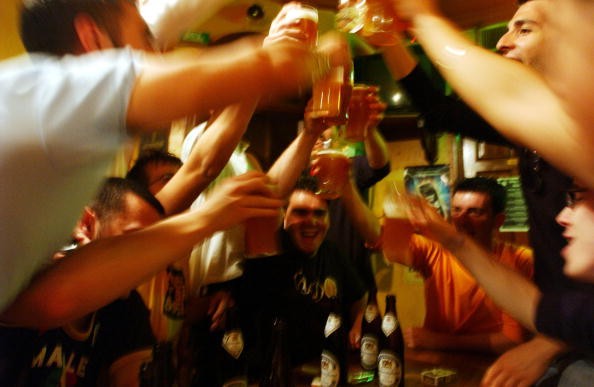
Because binge drinking has become common among teens, parents and pediatricians should talk to children about the dangers of alcohol use before they are teens, starting at age 9, according to a clinical report from the American Academy of Pediatrics (AAP).
The AAP's report notes that between 36% and 50% of high school students drink alcohol and between 28% and 60% say that they took part in binge drinking. Of the ones who admit to binge drinking, almost two-thirds say they binged on at least one occasion in the past 30 days.
Alcohol use among children and adolescents has become a concern in the United States. About one in five teens has had at least a sip of alcohol before age 13, with almost 80% having done so by 12th grade, according to the report.
Binge drinking is defined by the National Institute on Alcohol Abuse and Alcoholism (NIAAA) as a "pattern of drinking that brings blood alcohol concentration (BAC) levels to 0.08 g/dL." But the report notes that because children and teens usually weigh less than adults, it is likely to take less alcohol to reach unsafe BAC levels.
Three or more alcoholic beverages in 2 hours is considered binge drinking among girls aged 9-17 and boys aged 9-13, according to the report authors. For boys aged 14-15, four or more drinks in 2 hours is defined as binge drinking, rising to five or more drinks in 2 hours for boys aged 16-17.
Children start to think positively about alcohol between ages 9 and 13 years, the report notes. The more children and teens are exposed to alcohol advertising and marketing, the more likely they are to drink, and if they are already drinking, this exposure tends to make them drink more. Both parents and pediatricians should start talking to children about the dangers of drinking as early as 9 years of age, the report states. Pediatricians need to inform parents that they play a key role in how their use alcohol in the future.



